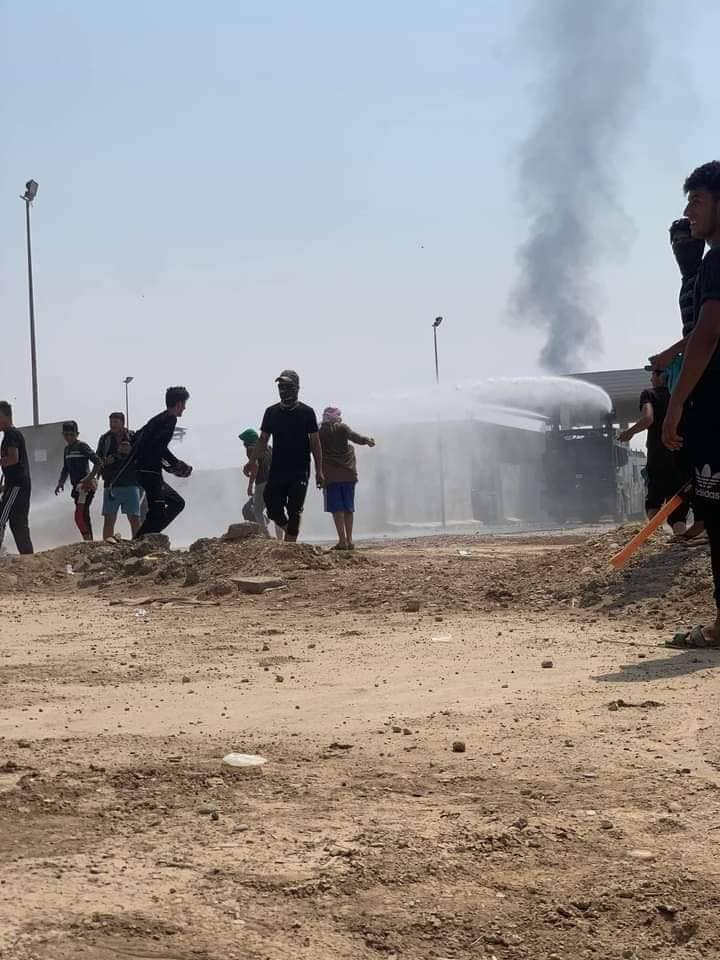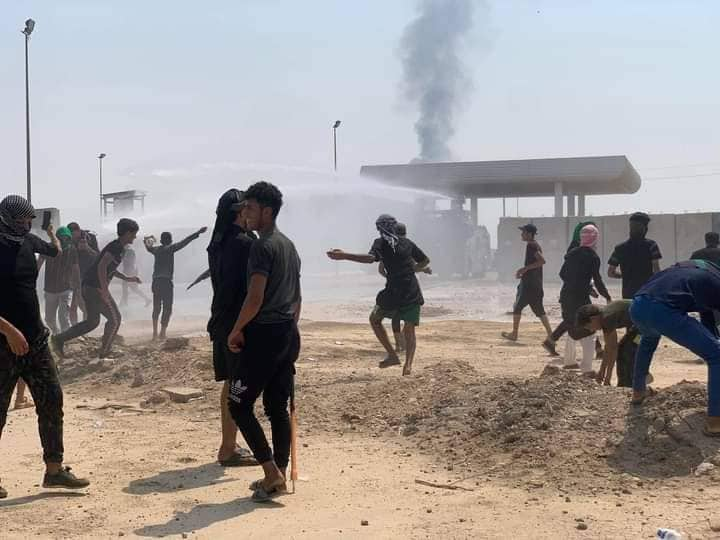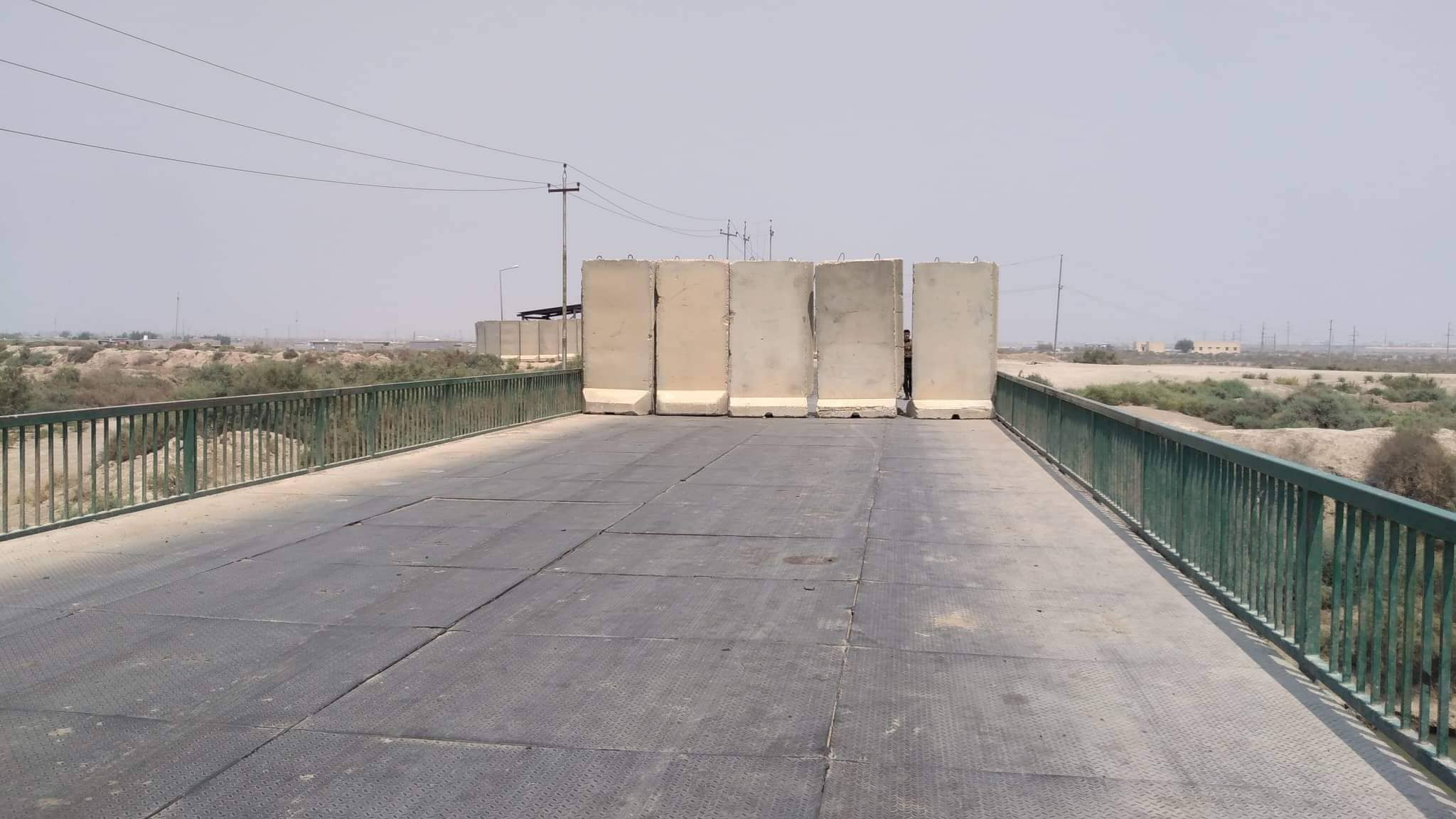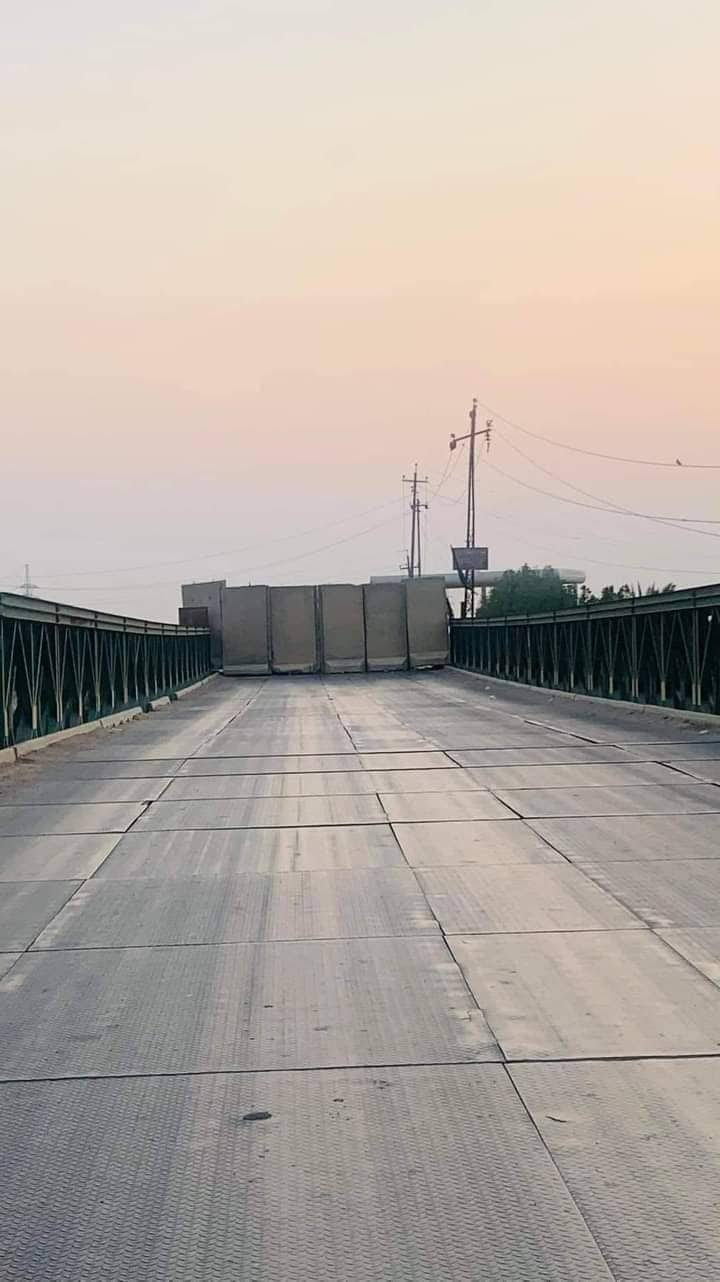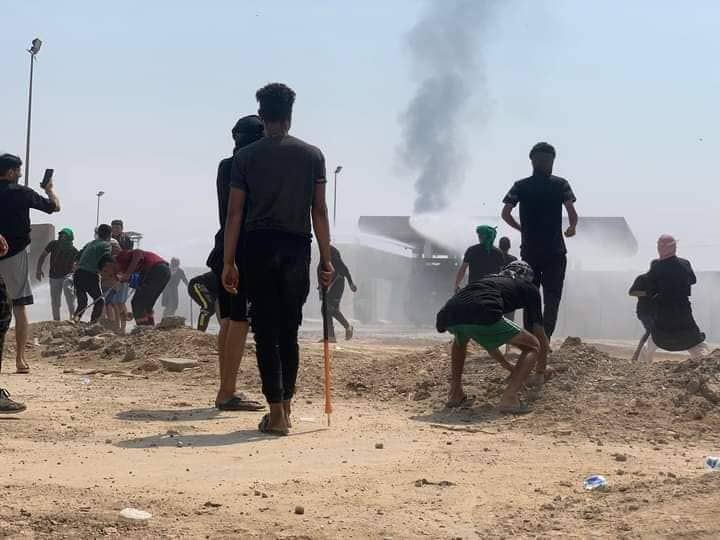Protests continue, environmental conditions worsen
As environmental conditions worsen in Iraq's southernmost province and high temperatures shut-down power grids, protests have been held in Basra in recent days against electricity shortages and other lacking basic services.
Concurrently, in Maysan (Amara), Awhari protesters demanding water and an end to the humanitarian crisis in their province have been met with force from Iraqi security forces, instead defending the oil company Petrochina. While their grievances are due to failings of government (lack of water, electricity, jobs) rather than oil companies themselves, by not diversifying its economy, Iraq is trapped in a horrendous system of reliance on the very export that is destroying its country.
According to Mustafa Hashem, 20, from Maysan, as of Tuesday morning 18 protesters remain detained. Along with other Marsh Arabs, he is calling for "the return of water to the rivers," and an end to the humanitarian crisis faced by those "living in the middle of nowhere."
"Some still think practicing protesting in the ideal ways works with the Iraqi government," he says. "In a country like Iraq, the protest in the same way the Berlin residents protest would be a joke because we do not live in a country that respects its citizens and its constitution."
"In our country, 500 barrels a day are more important than 50 thousand families threatened with migration and migration due to drought, poverty and marginalization. This is the fifth demonstration by the people of Ahwar... but we are surprised every time by the brutal and unjustified oppression."
Update:
On Tuesday, IOM Iraq published a report recording approx 20,000 people displaced due to water scarcity at the end of 2021, looking at just ten out of Iraq’s 19 governorates. The Iraqi government's 2021 NDC (UN climate action plan) did not address the growing crisis of climate migration, & the current caretaker govt's national Green Paper (albeit a work-in-progress) on measures to mitigate the impact of climate change, too, does not mention climate migration.
"Climate change alone does not produce the conditions that push people to move," the report notes. "Human factors are just as important in forcing people to relocate – in Iraq, this includes poor water resource management, outdated agricultural processes, pollution and reduced water flow caused by upstream countries."
On Monday, Basra was the hottest city in the world - and the heat is almost as extreme as the inequality.
Images from 07/08/22, submitted by Awhari activists:
